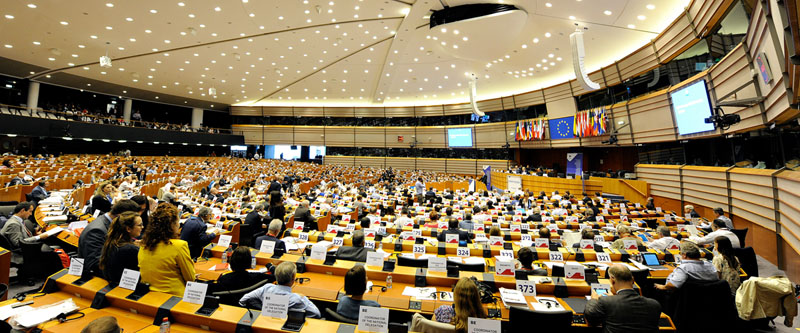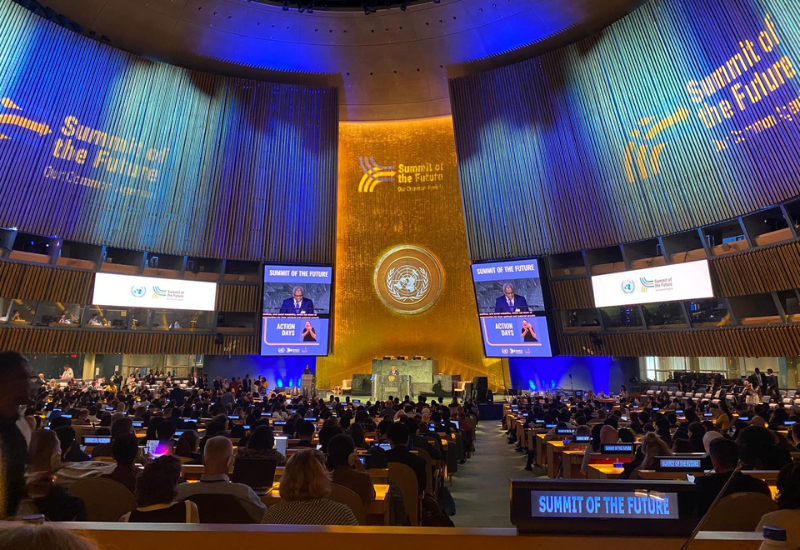
Karl-Heinz Lambertz,
President of the European Committee of the Regions (CoR)
The European Committee of the Regions agrees with ORU-FOGAR that decentralisation is a driving force for development. It champions this idea in all international forums, whether it be at the United Nations on climate issues, vis-à-vis the EU’s neighbourhood with the Euro-Mediterranean Regional and Local Assembly (ARLEM) or with the Conference of Regional and Local Authorities for the Eastern Partnership (CORLEAP), and of course, primarily within the EU itself, to ensure greater involvement of local and regional authorities in the development and implementation of EU policies and legislation.
Why the EU cannot ignore the cities and regions ?
Europe is currently facing major challenges and the cities and regions are often on the front line. If we take the example of the migrant crisis, it is clear that, on the ground, it was the cities and regions that first had to get organised. In Catania, in Athens, on the Greek islands too, and in many other places and countries, local and regional leaders have organised the reception of thousands of migrants in very difficult circumstances.
That is why it is absolutely necessary to think about and rebuild Europe from the ground up. Local and regional players are among the best placed to assess the added value of the EU for its citizens and give voice to their expectations. When envisaging the future of Europe, we cannot do without this expertise and ability to put forward proposals and take action.
Just as the European level influences the local and regional level, the local and regional level must be able to genuinely influence the European level. Cities and regions must be fully involved in European policy-making and recognised as fully-fledged European players.
It is important to work together, at all levels, and to see at which level it is preferable, in the interests of citizens, to take the decisions and implement them. This is the principle known in technical terms as "subsidiarity", and the European Committee of the Regions is the guardian of this principle at European level. However, those who wish to hijack this principle to strip the EU of its powers for the benefit of the Member States are wrong. As I see it, Europe needs to get closer to the citizens, and not to be weakened. This involves strengthening the role of cities and regions in the interests of the EU.
Why the EU must give greater recognition to cities and regions in its budget?
The budget negotiations are never easy; however, the Member States must agree on an EU budget that is ambitious for the people of Europe. Europeans need a budget that protects them from the adverse effects of globalisation, which promotes social and territorial inclusion, and which also enables them to respond to the new challenges such as migration, climate change, the digitisation of the economy and security.
Cohesion policy plays a vital solidarity-based role in strengthening the European Union. With shared management between Europe, the Member States, and the regions and cities, it is the best policy to provide a practical response to these concerns and new challenges. It is a policy for the future that works well.
By the end of the budget period 2014-2020, this policy will have helped a total of 7.4 million unemployed people to find a job, helped 8.9 million Europeans to obtain a qualification, facilitated access to drinking water and to the internet for millions of households, supported 1.1 million small and medium-sized enterprises, funded research projects, upgraded thousands of kilometres of roads and railways, and accomplished many other things.
It would be incomprehensible and dangerous to abandon a policy that supports Europeans so effectively. How can we claim to be building a Union without ensuring social, economic and territorial cohesion?
For this reason, the members of the Committee of the Regions having been calling for cohesion policy to apply to all regions and to continue to make up at least one third of the future European budget. This is also the aim of the #CohesionAlliance, which was launched by the Committee along with the leading European associations of regions and cities (AER, AEBR, CALRE, CEMR, CPMR and Eurocities).
The European Committee of the Regions is also calling for regions and cities to be better integrated and recognised as regards participating in other Commission funding programmes, be that in the field of research and innovation, education and youth, or transport.
Why recognition of multilevel governance enables better results to be obtained for European citizens ?
The calls for greater involvement of the cities and regions are not just some whim of locally-elected politicians. All of the studies and our experience have shown us that multilevel governance is the best way to deliver tangible results for the people of Europe. It is only with the involvement of all levels of governance, especially at the local and regional levels, that a place-based approach can be developed, which meets the actual needs of citizens. It is only with the cooperation of these different tiers of government that we can also bring together the means of solving the problems of the most disadvantaged areas, even in the richest regions. Without the regions and cities, the impact of EU policies would be considerably limited.
Integrated strategies, addressing all the structural and cyclical factors of poverty or losing social standing, are possible only by bringing together the relevant local players. In this regard, it is regrettable that the EU is moving away from the methods that it helped to set up. In removing the "rural development" pillar of the common agricultural policy (CAP), and triggering a certain renationalisation of the ESF, the European Commission would appear to have given up on its transformative ambition for our cities and regions.
We, at the European Committee of the Regions, have not given up, and intend to make this known throughout the negotiations on the next EU multiannual financial framework and on the rules for implementing cohesion policy, the CAP and all of the other policies with a territorial impact.













































































